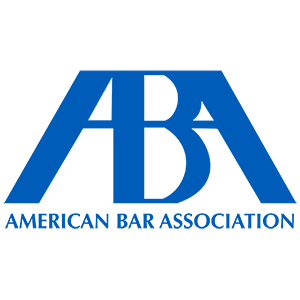Johnson & Johnson on Trial for Deceptive Marketing: A New Battle in the War on Drugs
June 11, 2019
Over 47,000 people died from opioid overdoses in 2017 — more than 130 people meet the same fate every day in the United States alone. Opioids act on the nervous system to relieve pain and thus are often prescribed to patients who have injuries or are recovering from surgery. Common prescriptions opioids are fentanyl, oxycodone, and morphine, among several others. However, opioids cause euphoric, highly addictive feelings, as well as tolerance. As a person continues to take an opioid, he needs more of it to feel the same pleasurable effects — with higher and higher doses, overdosing and death become an increasingly realistic threat. The opioid epidemic has become a national public health crisis.
Oklahoma Takes a Stand
The state of Oklahoma (Ashley’s home state) has made itself a soldier in the war on drugs by accusing several drug companies of furthering the opioid crisis. Already, Purdue Pharma and Teva have settled for $270 million and $85 million, respectively. However, Johnson & Johnson elected to proceed to trial, maintaining that its subsidiary company, Janssen, provides “medically necessary medications” which are prescribed lawfully, according to Larry Ottoway, in J&J’s opening statement on May 28th, 2019.
Johnson & Johnson has come under fire for two drugs in particular: Nucynta, an opioid tablet which it stopped making in 2015, and a fentanyl patch called Duragesic, that is still being produced and prescribed. The company has said that their products account for less than 1% of opioid prescriptions written annually since 2008.
The company, accused of being a “kingpin” in the opioid crisis, additionally argued how unlivable life would be with no option to treat chronic pain, from which 50 million adults suffer, suggesting its products are essential for maintaining many individual’s quality of life. Attorney Michael Burrage, counsel for the State, said in opening arguments that J&J “falsely and deceptively […] promoted opioids for treatment of chronic, non-malignant pain.” Attorney Brad Beckworth added that the company was aggressive in marketing its opioids to everyone, calling it “deceitful” and “brainwashing.” Meanwhile, counsel for Johnson & Johnson, John Sparks, has argued that the opioid-based medicines the company manufactures have a “miniscule market share in Oklahoma” and that “Janssen never manufactured, sold or marketed oxycodone or hydrocodone medications.” While counsel for the State believes that Johnson & Johnson will likely have to pay large penalties, the company has maintained that the claims against it are unsubstantiated. Johnson & Johnson has suggested it feels as though it is taking the fall for Big Pharma as a whole rather than standing trial for laws it has actually broken.
J&J’s purported deceptive marketing, the State argues, is a violation of Oklahoma’s public nuisance law. A “nuisance” in Oklahoma is created by unlawfully doing an act “that annoys, injures or endangers the comfort, repose, health, or safety of others” among other qualifications (this one being the most directly related to this case). Okla. Stat. tit. 50, § 50-1. A “public nuisance” means that an entire community is affected. Okla. Stat. tit. 50, § 50-2. The laws regarding public nuisance are similar in other states, including Arizona. Applying nuisance laws to these kind of cases is nothing new — in the early 1990’s, over 40 states sued “big tobacco” asserting public nuisance theories.
Proving that opioids are a public nuisance is much different than cigarettes. When used properly, opioids can be essential to treating serious medical conditions. In addition, opioids are not inherently a nuisance. Instead, the nuisance stems from misuse, overprescribing, and those who abuse opioids. Recently, a North Dakota court dismissed a nuisance suit against Purdue Pharma, finding that the company could not “control how doctors prescribe its products, and it certainly cannot control how individual patients use and respond to products.” State of North Dakota Ex Rel. Wayne, v. Purdue Pharma, L.P. et. al, Case No. 08-2018-CV-01300.
The J&J case may only be the tip of the iceberg.
According to prosecutors, Johnson & Johnson marketed its opioids as “safe and effective for everyday pain,” but has failed to disclose its addictive properties to consumers. However, should J&J be held responsible for the way doctors prescribe, and patients use its drugs? Regardless, this trial may be a preview of how similar claims will play out in October when two Ohio municipalities take similar cases to trial against opioid drug makers and distributors in Cleveland, where more than 1,900 such cases have been gathered before one federal judge. The suing states and municipalities claim that they have spent billions in tax dollars on substance-abuse treatment, prevention and criminal enforcement. Oklahoma is seeking $17.5 billion in damages.
Stay tuned….
Check out CNN to learn more about the trial and MM&M to read about the changes this case might bring about in healthcare marketing.








